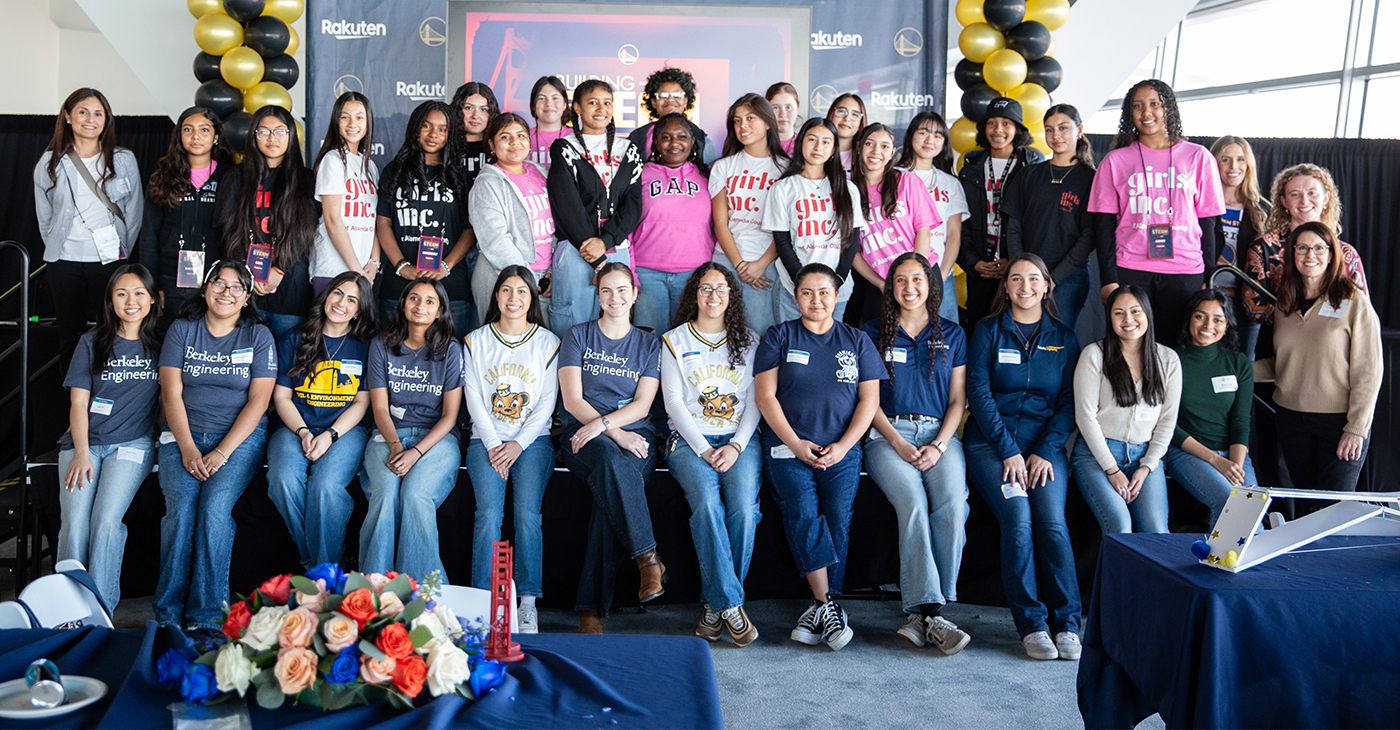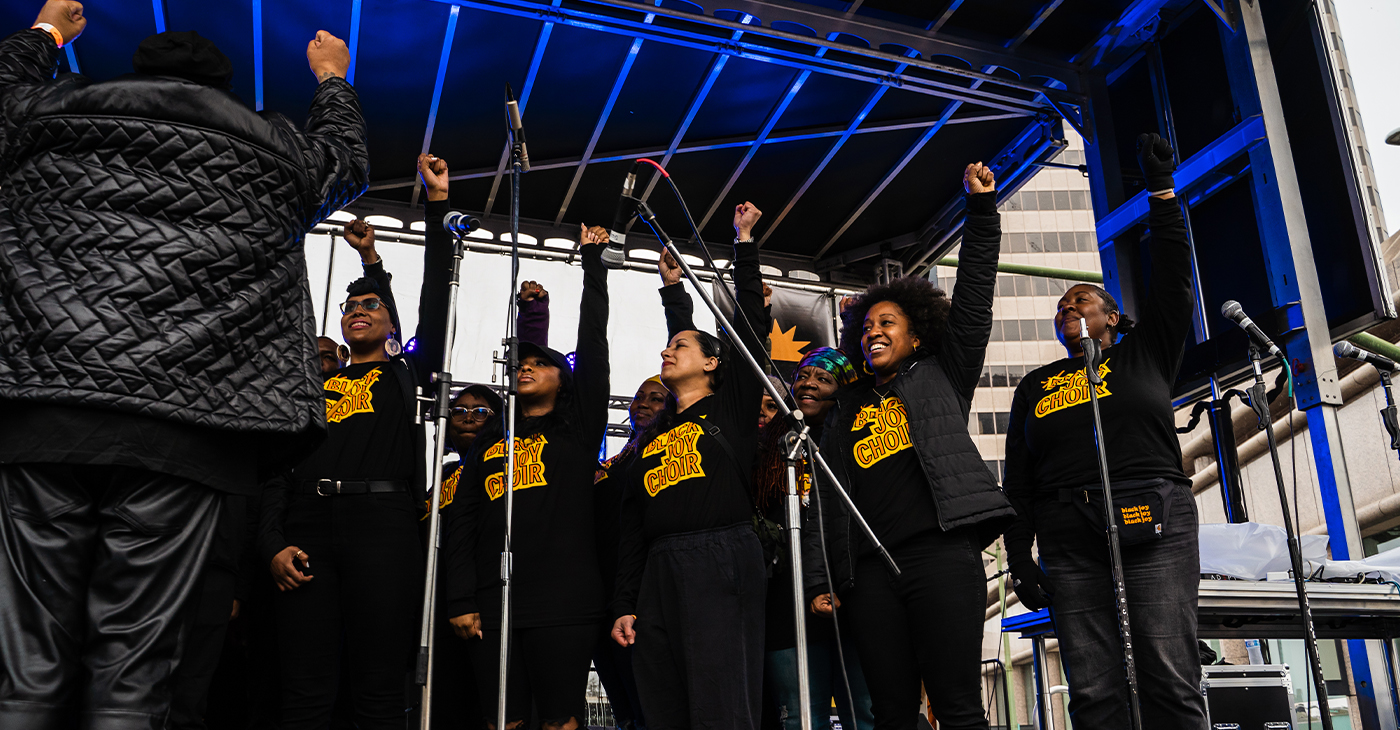Berkeley
Savio lecturer: Speak up for workers ‘behind the kitchen door’
By Barry Bergman, UC Berkeley News
As recently as 2001, Saru Jayaraman admitted Thursday in Wheeler Auditorium, she was just another “oblivious, happy consumer,” a recent arrival in New York City dining out as often as three times a day and rarely giving a thought to the people who served and prepared her meals.
It was the Sept. 11 attack on the World Trade Center — in which 73 workers in the Windows on the World restaurant, mostly immigrants, lost their lives, and which caused the loss of thousands of food-industry jobs throughout lower Manhattan — that opened her eyes, and helped make her one of the country’s most impassioned, articulate voices on behalf of restaurant workers.
Last Thursday night, as the featured speaker at this year’s Mario Savio Memorial Lecture, Jayaraman — now the director of UC Berkeley’s Food Labor Research Center — urged her audience also to “speak up, in the same way that you spoke up 50 years ago,” at the birth of the Free Speech Movement.
And, reflecting at least one way activism has changed since the 1960s, now there’s an app for that, courtesy of the workers’-rights organization Jayaraman founded post-9/11, Restaurant Opportunities Centers United.
The evening, coming toward the end of a weeklong 50th-anniversary celebration of the FSM, began on a technological note, as Lynne Hollander Savio, Mario’s widow, read a message from Edward Snowden, whose release of thousands of classified documents in 2013 blew the whistle on widespread U.S. government surveillance.
“Berkeley’s unparalleled traditions of student activism and community engagement have been both a challenge and an inspiration to human-rights movements worldwide,” wrote Snowden, now in exile in Russia. “They compel us to imagine the world that we want to live in and to stand up for it — and they show us that with vision and persistence, we can change the world.”
That was a message shared by Jayaraman, who agreed that “surveillance is the issue of our generation,” together with “corporate control of our democracy.”
How is it possible, she asked, that the U.S. restaurant industry — “one of the most profitable and fastest-growing industries in America” — continues to provide the “absolute lowest-paying jobs” in the nation? How is it possible that 90 percent of the country’s restaurant workers — many of them involved in preparing food — don’t get even a single earned sick day?
It’s possible,” she explained, “due to the power and influence of the trade lobby called the National Restaurant Association, which we call ‘the other NRA.’”
In 1996, led by former Republican presidential contender Herman Cain, the “other NRA,” she said, “struck a deal with Congress”: It would not oppose a modest boost in the federal minimum wage, so long as the minimum wage for tipped workers “stayed frozen forever” at $2.13 an hour. (California is one of just seven states that do not have a separate minimum wage for tipped workers.)
“The NRA has managed to paint a picture of who tipped workers are,” Jayaraman said. “They say the white guy, working at Chez Panisse, earning $18 an hour in tips, or $100,000 a year — he’s doing quite fine.” In fact, however, “70 percent of tipped workers in America are women — women who work at the IHOP, and Applebee’s, and the Olive Garden and Red Lobster. Women whose median wage, including tips, is $8 an hour.”
Tipped workers have a poverty rate three times that for the rest of the work force, Jayaraman said, and use food stamps at double the rate — “which means,” she added, “the women who put food on our tables in America can’t actually afford to put food on their own family tables.”
Women in the restaurant industry are also subject to constant sexual harassment, she said, both from their managers and from the customers on whose tips, absent a livable wage from their employers, their financial survival depends.
Jayaraman, who attended UCLA before going on to Yale Law and the Harvard Kennedy School of Government, was organizing restaurant workers, custodial workers and day laborers on Long Island when she was enlisted to start a relief center to help Windows on the World survivors and their families get back on their feet in the wake of 9/11.
That effort eventually grew into Restaurant Opportunities Centers United — ROC-U — a national restaurant-workers organization with 13,000 members in 32 cities. Jayaraman has written a book, “Behind the Kitchen Door,” and has drawn national attention to the cause via countless news profiles and television appearances.
Activism
Golden State Warriors Program Is Inspiring Next Generation of Female Engineers
Breaking down barriers and biases that deter young girls from pursuing STEAM subjects is essential for creating a level playing field and ensuring equal opportunities for all. By challenging stereotypes and promoting a culture of inclusivity and diversity in STEAM fields, experts believe young girls can be empowered to pursue their interests and aspirations without limitations confidently. Encouraging mentorship, providing access to resources, and celebrating girls’ achievements in STEAM are all crucial steps in creating a supportive environment that fosters success.

By Y’Anad Burrell
The Golden State Warriors and e-commerce giant Rakuten are joining forces to inspire the next generation of female engineers through Building STEAM Futures, part of The City Calls campaign.
Organizers say the initiative is founded on the idea that science, technology, engineering, arts, and mathematics (STEAM) are crucial fields for innovation and progress, and empowering young girls to pursue careers in these areas is more important than ever. Studies consistently show that girls are underrepresented in STEAM fields, resulting in a gender disparity that limits potential and hinders diversity.
Breaking down barriers and biases that deter young girls from pursuing STEAM subjects is essential for creating a level playing field and ensuring equal opportunities for all. By challenging stereotypes and promoting a culture of inclusivity and diversity in STEAM fields, experts believe young girls can be empowered to pursue their interests and aspirations without limitations confidently. Encouraging mentorship, providing access to resources, and celebrating girls’ achievements in STEAM are all crucial steps in creating a supportive environment that fosters success.
On Saturday, March 8, International Women’s Day, the Warriors and Rakuten hosted 20 middle school girls from Girls Inc. of Alameda County at Chase Center’s Above the Rim for a hands-on bridge-building experience. The young girls from Girls, Inc. of Alameda County had an opportunity to design, build and test their own bridge prototypes and learn the fundamentals of bridge construction from the Engineering Alliance and the UC Berkeley Steel Bridge Team.
This STEAM experience for the girls followed the first session in January, where they took a behind-the-scenes tour of the Golden Gate Bridge, learning about its design and construction from industry experts. The City Calls campaign, tipped off with the unveiling the Warriors’ new bridge-themed City Edition jerseys and court design earlier this year.
Activism
Lawsuit Accuses UC Schools of Giving Preference to Black and Hispanic Students
The lawsuit also alleges UC is violating the Equal Protection Clause of the 14th Amendment and Title VI of the Civil Rights Act of 1964, which bars racial discrimination by federally funded institutions. In response, UC stated that race is not a factor in admissions, as per state law, and that student demographic data is collected only for statistical purposes.

By Bo Tefu, California Black Media
A lawsuit filed in federal court accuses the University of California (UC) of racial discrimination in undergraduate admissions, alleging that Black and Latino students are favored over Asian American and white applicants. The lawsuit, filed by the group Students Against Racial Discrimination, claims UC’s admissions policies violate Proposition 209, a state law passed in 1996 that prohibits the consideration of race in public education.
The lawsuit also alleges UC is violating the Equal Protection Clause of the 14th Amendment and Title VI of the Civil Rights Act of 1964, which bars racial discrimination by federally funded institutions.
In response, UC stated that race is not a factor in admissions, as per state law, and that student demographic data is collected only for statistical purposes.
Stett Holbrook, a spokesperson for the UC system, said the entity had not been served with the lawsuit.
“If served, we will vigorously defend our admission practices,” said Holbrook.
“We believe this to be a meritless suit that seeks to distract us from our mission to provide California students with a world-class education,” he said.
The complaint criticizes UC’s use of a “holistic” admissions process, arguing it replaces objective academic criteria with subjective considerations that disadvantage certain racial groups. It cites admission rate disparities at UC Berkeley, noting a decrease in Black student admissions from 13% in 2010 to 10% in 2023, compared to an overall drop from 21% to 12%.
The lawsuit follows the U.S. Supreme Court’s 2023 ruling banning affirmative action in college admissions, which has prompted challenges to race-conscious policies nationwide. The plaintiffs seek a court order preventing UC from collecting racial data in applications and request a federal monitor to oversee admissions decisions.
Activism
Black History Month in the Bay Features, Parades, Festivals and Speakers
Black History Month did not begin as Black History Month. In 1915 after the 13th Amendment was passed Carter G. Woodson and Jesse E. Moorland founded the Association for the Study of Negro Life and History (ASNLH). This organization sponsored the initiation of a national Negro History Week, which took place in February, the same week as Frederick Douglass’ birthday. During the Civil Rights Movement this transformed into the Black History Month we still celebrate today.

By Daisha Williams
Black History Month is a month that is centered in teaching, learning, and honoring the journey of Black people in America. Black people in America have faced discrimination, abuse, and every kind of mistreatment. Black History Month is about recognizing not only that history, but how far the community has come despite it, and celebrating Black joy.
Black History Month did not begin as Black History Month. In 1915 after the 13th Amendment was passed Carter G. Woodson and Jesse E. Moorland founded the Association for the Study of Negro Life and History (ASNLH). This organization sponsored the initiation of a national Negro History Week, which took place in February, the same week as Frederick Douglas’ birthday. During the Civil Rights Movement, this transformed into the Black History Month we still celebrate today.
There are many ways that people celebrate Black History Month and as always, the Bay Area has a little bit of everything.
Most popularly, the Eighth Annual Black Joy Parade will be taking place in Downtown Oakland on Feb. 23. The parade will begin at 14th and Franklin Streets at 12:30 p.m. There will be a festival after the parade ends lasting until 7 p.m. This is the largest Black Joy Parade and sure to be a fun time. Schools, community organizations, and performers can sign up to be in the parade by Feb. 6 on the Black Joy Parade website.
In line with the spirit of the month “From Black History to Black Futures” will take place on Feb. 23 from 2-5 p.m. in Vallejo. This event will show the breadth and beauty of Black life through showcasing speakers, artistic performances, and community booths. This free celebration is hosted by a community organization, Vallejo Building Black Power and Leadership, at 4380 Sonoma Blvd suite 224. The organizers ask that attendees register on Eventbrite because of limited space.
Similar events will be happening in San Francisco and San Leandro.
In San Francisco, Thrive City is hosting a free community event that includes performances of all kinds, from music to spoken word, with the headliner being August Lee Stevens. This event will take place at the Dance Mission Theater on Feb. 1 from 12-3 p.m. Though it is free, priority will be given to people who registered on Eventbrite.
In San Leandro, there will be the Black History Month RnB Day Market at 222 Davis St. This family-friendly event will be put on by the Downtown San Leandro Community Benefit District and include live music, dance performances and a fashion show. This free event will be on Feb. 15 from 12-6 p.m.
There are other ways to celebrate this month other than community festivals and block parties. For example, the College of Marin’s Umoja group is putting together a Black History Month Poetry Reading. This event will be free and take place on Feb. 19 from 12:40 to 1:30 p.m.
At the North Berkeley Senior Center there will be a Black History Month celebration hosted by the City of Berkeley, Health, Housing and Community Services, Mental Health Division. Keynote speaker Gigi Crowder, CEO of the Contra Costa County branch of the National Alliance on Mental Illness (NAMI) will be giving a talk on Feb 11 from 10 a.m. to 1 p.m.
A Black History Month celebration with line dancing, music, and food will be in the Richmond Memorial Auditorium on Feb. 22 1-3 p.m. with doors opening at 12:30. This event will be hosted by the City of Richmond and attendees must register in advance. Tickets are $15 and for more details contact 510-620-6793.
Musical expression has always been a vital part of Black culture, and Black people have contributed largely to the development of many music genres. Stockton Soul is honoring Black History Month with an ensemble created to highlight the legacy of Black music with influences like Curtis Mayfield and Isaac Hayes. The concert will be held on Feb. 15 with tickets for only $8 for adults.
-

 Activism4 weeks ago
Activism4 weeks agoOakland Post Endorses Barbara Lee
-

 Activism4 weeks ago
Activism4 weeks agoOakland Post: Week of March 28 – April 1, 2025
-

 Activism3 weeks ago
Activism3 weeks agoOakland Post: Week of April 2 – 8, 2025
-

 #NNPA BlackPress3 weeks ago
#NNPA BlackPress3 weeks agoTrump Profits, Black America Pays the Price
-

 Activism2 weeks ago
Activism2 weeks agoOakland Post: Week of April 9 – 15, 2025
-

 #NNPA BlackPress3 weeks ago
#NNPA BlackPress3 weeks agoHarriet Tubman Scrubbed; DEI Dismantled
-

 #NNPA BlackPress3 weeks ago
#NNPA BlackPress3 weeks agoLawmakers Greenlight Reparations Study for Descendants of Enslaved Marylanders
-

 #NNPA BlackPress3 weeks ago
#NNPA BlackPress3 weeks agoTrump Targets a Slavery Removal from the National Museum of African-American History and Culture



















































